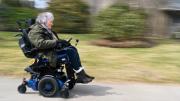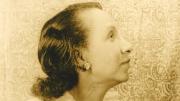This enormous excavation might tempt Virginia Lee Burton, who lived in Gloucester, Massachusetts, when she wrote Mike Mulligan and His Steam Shovel in 1939, to draft a sequel. The hole, shown in early summer, will accommodate two-thirds of the 137,000-square-foot Laboratory for Interface Science and Engineering, providing clean-room and vibration-free research space underground for work in materials science and nanotechnology.
This view, looking south toward the Science Center, shows the stout beams, slurry walls, and tiebacks used to hold up McKay Laboratory (on the left), where much of the Division of Engineering and Applied Sciences is housed, and the Music Building (on the right); construction for the new structure, at the bottom of the pit, had just begun. The above-grade part of the complex, on columnar stilts to allow pedestrian passage, will enclose a quadrangle in the courtyard north of the Science Center (the roof over the current hole), which will become a performance space.
 |
| Photograph by Jim Harrison |
Even with much bigger equipment than Mike’s steam shovel (and help from many sidewalk superintendents), it took many days longer, and millions of dollars more, to get down this deep than to dig the cellar for the new Popperville town hall in the children’s story. And an even bigger excavation has just begun a couple of blocks north, beyond the Museum of Comparative Zoology, for the 460,000-square-foot Northwest Building, a multidisciplinary laboratory complex. For views of above-ground summer construction, please see "The Shrouds of Cambridge."





